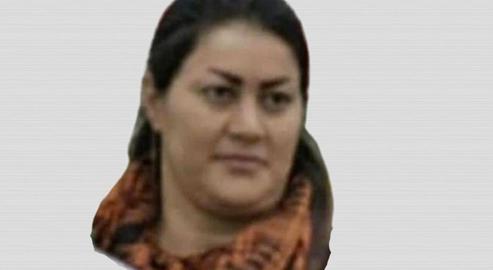Issa Bazyar, a minefield and unexploded ordnance specialist, is currently distributing his book Living Safely Beside a Minefield for free in high-risk border towns.
For 13 years Bazyar worked to defuse landmines as an expert in the Ministry of Defense. After emigrating to Turkey, he compiled a book on his experiences in one of the world’s most dangerous jobs. He hopes the content will save lives for generations to come.
***
Living Safely Beside a Minefield is a set of instructions on how to reduce the risk posed by landmines planted in the ground. It comes as the result of Bazyar's many years of experience, including having shrapnel embedded in his body by two separate mine blasts. Drawn together and published with the help of Bazyar’s friends, it has so far been distributed in high-risk areas such as Nashkash, Hawraman, Sardasht, Piranshahr, Dasht and Kohneh Lahijan, and among children and kulbars [Kurdish border couriers carrying goods].
A recent tragedy has lent a sense of urgency to the book’s distribution. On the evening of Friday, July 17. three people in the Kale-Ghandi neighborhood of Mehran, Ilam province were killed by an unexploded mine left over from the Iran-Iraq war. The IRGC division for Ilam had assured people the area was clear.
Iran is the second most landmine-infested country in the world and 42,000 square kilometers of its territory are pockmarked with mines other explosives. Many Iranian victims of unexploded ordnance, the government knows but does not wish to disclose, will be killed by landmines planted on home soil by Iranian military forces as a defense strategy.
Back in 2002, Shirin Ebadi – Iran’s first female judge and a Nobel prizewinning human rights activist – was one of the first people to shed light on the issue of unexploded ordnance across Iran. Following a string of incidents in Iran, including the death of a child in Borujerd, Lorestan province, of a climber named Hamed Talebi in the Lut Desert and of an explorer and several border guards in Tabas, Ebadi wrote to the Ministry of Interior asking why mines had been planted in non-conflict zones.
But despite the large number of casualties, Iran has resisted signing up to either the international Anti-Personnel Mine Ban Convention or the Convention on Cluster Munitions.
“Thirty years after the war,” says Issa Bazyar, “landmines in many cities and towns are still threatening people: especially children.”
Bazyar worked for many years on behalf of the Ministry of Defense and describes himself as an independent, non-partisan individual who is passionate about sharing his instructive experience with others – at his own expense and motivated by love. He was born in Ilam province and grew up in Khuzestan. A child of war, he himself has twice experienced landmine accidents in Dehloran and Shalamcheh and knows first-hand the horrific extent of what they can do.
Eventually, Bazyar came under political pressure because of his work and had to endure a spell in prison. After this demoralizing experience he went to Turkey, but continued to work from there. “First,” he said, “with the help of a Mr. Jamal Hosseini, I wrote a book called Mine, the Silent Killer of Iranians which was published by [Iranian rights-based news agency] Hrana. The next vbook, Until the Last Mine, is a biography of three Iranian-Afghan and Iranian-Iraqi minesweepers who spent their lives in minefields."
Bazyar says his biggest worry is for the safety of those helping people in contaminated areas. "We follow the news and identify the infected spots,” he says. “My attention is mainly on the places with the most causalities. I’ll prepare and send instructions and brochures, and there are friends there who distribute them. I always fear their arrest because they are educating the people."
Bazyar says the whole project comes out of his own pocket. "Maybe that's why my family is not very happy with my activities. But it’s my sole interest and purpose. I worked in the minefields for 13 years. I neglected my youth and health, and the shrapnel left in my body is a gift to me. There are not many people in the minefields who show interest or can survive in the long run. But the mines will not leave us alone."
The books on minesweeping were not Bazyar’s first. As a teenager, he witnessed the midnight burial of a number of murdered political dissidents of the 1980s. He later observed a mass grave in the Phase II area of Padad Shahr. He was so struck by what he had seen that he wrote a book entitled Blood Dripping from UNESCO Eucalyptus Trees": about political executions at the UNESCO prison in Dezful, speaking to the families of some of the young people who were killed.
visit the accountability section
In this section of Iran Wire, you can contact the officials and launch your campaign for various problems





























comments